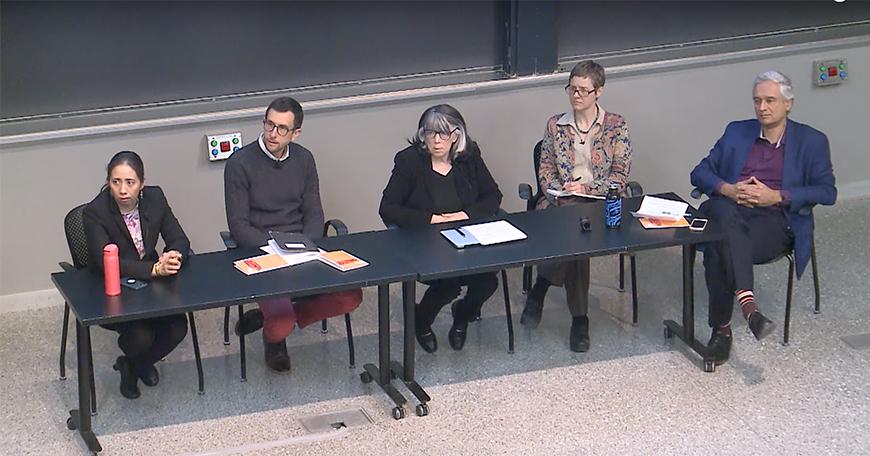
While so many science fiction books tell of a world where thoughtless scientists produce an AI that exterminates the human race, our present-day society, in fact, also struggles with the ethical issues of STEM. As revolution after revolution in the past two centuries have enabled us to imagine, create, and build on a scale far greater than ever before, the importance of ethics and humanity rise alongside technology.
At this year's Festival of Learning after Purdue University’s Professor Alice Pawley described her thoughts on how STEM education ought to interact with social justice and climate change, and indeed how they are all related, a panel of MIT Faculty began to share their thoughts and perspective on the matter. Moderated by Krishna Rajagopal, Dean of Digital Learning and William A. M. Burden Professor of Physics, the panel of three faculty members included Janelle Knox-Hayes, Associate Professor of Economic Geography and Planning and Head, Environmental Policy and Planning Group; David McGee, Associate Professor, Earth, Atmospheric, and Planetary Sciences and Director, Terrascope Learning Community; and Susan Silbey, Professor of Humanities, Sociology and Anthropology, and Professor of Behavioral and Policy Sciences.
Professor Knox-Hayes began by acknowledging the “digital revolution” that motivated the creation of MIT’s College of Computing. However, in the context of climate change, she warned about the alienation of certain people – citing coastal Louisiana and Alaskan tribes that have been adversely affected by flooding and land loss. Moreover, their grievances with the government over lack of support arise from a fundamental “clash” against policy-makers and researchers over core values. Indeed, moving forward, says Knox-Hayes, we must put inclusion of the humanities at the forefront of STEM.
Next, Professor McGee shared his experiences leading the Terrascope Learning Community. He noted that his students consistently reevaluate their views on the core essence of science throughout their studies. Ever-ambitious, MIT students walk into class on the first day dreaming of the complex, technical solutions they are sure to find. At some point throughout the year, however, they discover that problem-solving in STEM must include human values: cultural consciousness, available resources, and empathy with the needs of real people. As Professor Pawley says of Purdue engineers, communication and the humanities are a critical part of being an engineer.
Finally, Professor Silbey tackled the issue of STEM education, focusing on MIT itself. While MIT has three of five schools for which “normative and political analysis” is central, she remarks that communication between the schools is lacking, and indeed, fundamentally difficult. Engineering education in general is too short, spanning four undergraduate years, where students rush to learn marketable skills. As the only profession in which an undergraduate degree suffices for licensure, Silbey continued, engineering attracts students who seek “training for an occupation, not an education.” Since the costs of education are so burdensome, it is no surprise that students seek a lucrative career to make them pay them off. As a result, report after report throughout the past century has called engineering education a failure, citing failure to integrate with other aspects of humanity. While MIT requires students take eight HASS (Humanities, Arts, and Social Sciences) classes to graduate, Silbey notes that nearly a third of students take only foreign languages and economics classes to satisfy the requirement, which subverts the goal of HASS classes.
While all three panelists discussed different topics, each provided a unique perspective and insight to the central theme of Professor Pawley’s keynote presentation, which demonstrated a need for integration: the issues of race, gender, social inequality, and climate change are linked by a common societal forces, and the acceptance of the humanities as an inherent part of STEM education is critical in solving these pressing issues.